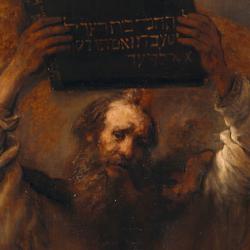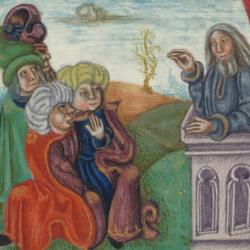Walter Brueggemann’s Sabbath As Resistance is, like most of Brueggemann’s other work, bracing and frustrating in equal measure.
He rightly sees the Sabbath command in connection with the first commandment: Worshiping the God of the exodus means worshiping a God who delivers from the demanding, restless gods of Egypt and their political representatives (Pharaoh). He also links Sabbath with the demand that Israel renounce images in worship, noting that images turn worship back toward exchange and the work-culture from which Yahweh delivered His people.
Indeed, one of the unique things about Yahweh among the gods (other than being the God, of course!) is His gift of rest, His deliverance from the “anxiety-producing system” of commodities. Rest is for Yahweh the way of life: “YHWH is a Sabbath-keeping God, which fact ensures that restfulness and not restlessness is at the center of life. YHWH is a Sabbath-giving God and a Sabbath-commanding God. Israel, for that reason, is always again to re-choose between ‘life and death’ (Deut. 30:15–20), between YHWH and ‘the gods of your ancestors’ (Josh. 24:14–15), between YHWH and Baal (1 Kgs. 18:21), between the way of Torah and the way of sinners (Ps. 1). Sabbath becomes a decisive, concrete, visible way of opting for and aligning with the God of rest.”
Brueggemann is also on the right track in much of his critique of the dynamics of contemporary consumer culture. The God of rest delivers not only from Egypt but also from “the liturgy of consumerism in the service of market theology, always offers one more product for purchase, one more car, one more deodorant, one more prescription drug, one more cell phone, one more beer.”
But then there are the frustrations. Having gotten a head of steam critiquing commodity fetishism, he can’t quite stop himself from launching a critique of Solomon’s temple. So much gold! “The attention to gold objects clearly skewed the simple and direct matter of covenantal possibility.” Brueggemann knows, of course, that the biblical writers talk about gold to enhance Solomon’s glory, but Brueggemann himself finds it distasteful if not tasteless. What are we to do in the new Jerusalem, when even the streets are gold?
And at that point he stops offering us a biblical understanding of rest and work, wealth and commodities, and he begins to impose an ideology constructed from the Bible and other sources onto the Bible itself.















